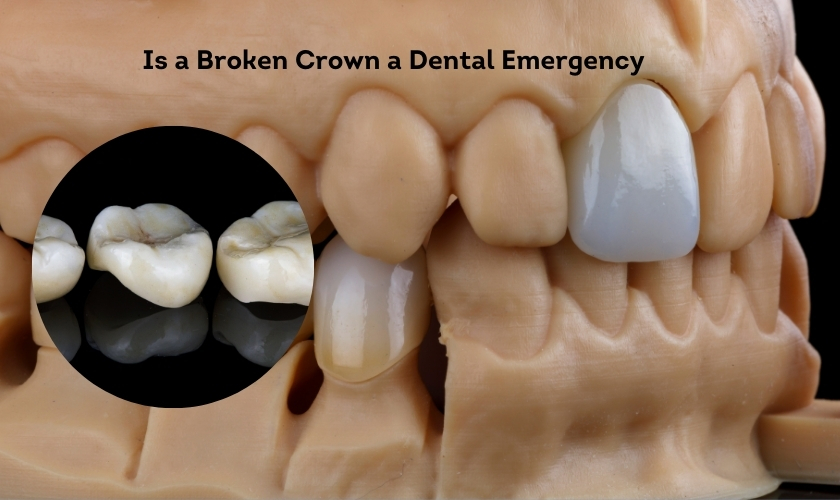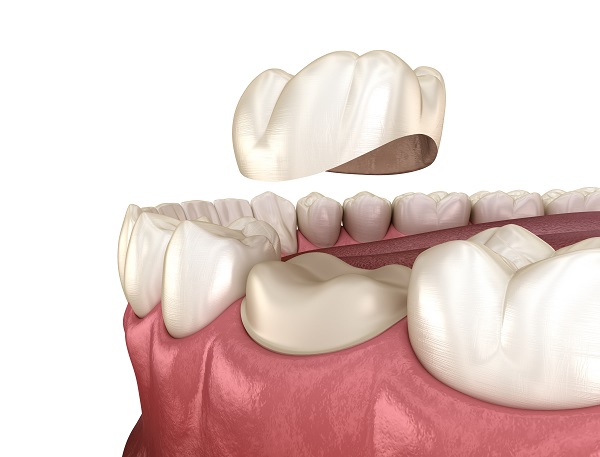Top Family, Cosmetic and Implant Center In 537 Amherst St, Nashua, NH 03063
Types of Dental Crowns and Cost: A Guide of 2024
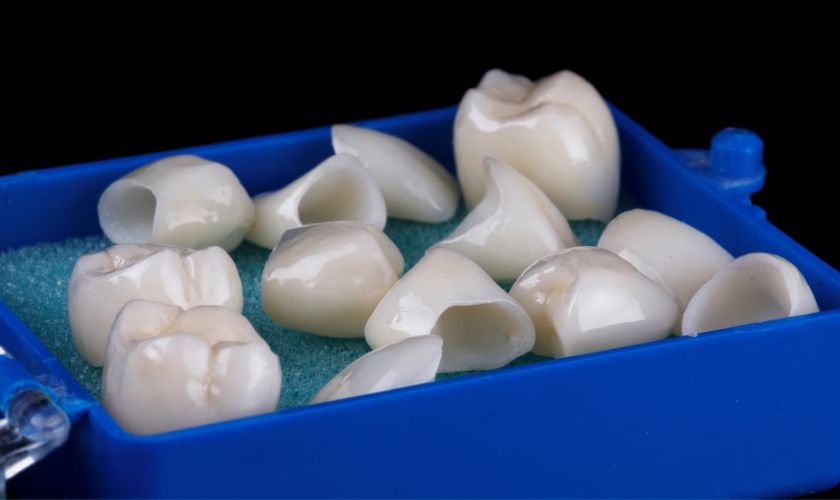
If you’re looking to restore your smile and protect damaged teeth, dental crowns are a fantastic option. These versatile restorations can beautifully enhance both the function and appearance of your teeth. In this article, we will explore the different types of dental crowns available, their unique benefits, and the average cost associated with each type. So let’s dive in and discover which crown is perfect for your smile! Whether we’ve got you covered when it comes to restorative dentistry.
Understanding Dental Crowns
A dental crown is a type of dental restoration that is used to encase or cap a damaged or weakened tooth. It is a custom-made covering that is placed over the entire visible portion of the tooth, extending from the gum line to the chewing surface. Dental crowns are designed to provide strength, protection, and improved aesthetics to a compromised tooth.
Dental crowns are custom-made caps that fit over a damaged or weakened tooth, restoring its function and aesthetic. Think of them as tiny tooth superheroes, safeguarding your smile from further harm and restoring its natural beauty. But not all crowns are created equal.
But First, Do You Really Need a Crown?
You’re absolutely right! Choosing between a crown, inlay, onlay, or filling can be overwhelming, and rightfully so. It’s like picking the right piece for your smile puzzle! So, how do you decipher which one fits best? That’s where your trusty dentist comes in, wielding the magnifying glass of examination and years of oral expertise.
During your first visit, they’ll become Sherlock Holmes, uncovering the clues in your teeth to determine the perfect treatment. Here are some of the mysteries they’ll solve:
The Tooth Detectives:
- Cracked Case: If your tooth has suffered a major chip or crack, a crown might be the sturdiest solution, acting like a knight’s helmet to protect it from further damage.
- Cavity Conundrum: For deep cavities that threaten the tooth’s core, a crown could offer a full fortress, replacing a lost filling or acting as a bridge over weakened areas.
- Implant Intrigue: If you’ve had an implant, like a missing tooth’s undercover agent, a crown can be its stylish disguise, ensuring it blends seamlessly with your smile.
- Root Canal Revelations: Sometimes, after a root canal (the tooth’s internal makeover), a crown becomes the finishing touch, ensuring long-term strength and protection.
- Bite Blues: Is your bite feeling all out of whack? A crown can act like a dental sculptor, reshaping your tooth to create a harmonious chewing experience.
- Smile Secrets: Beyond just function, crowns can be like fairy godmothers for your smile. If you’re looking for a little cosmetic magic, they can adjust the size, shape, and even color of your teeth, giving you a Hollywood-worthy grin.
Remember: While this gives you a glimpse into the detective work your dentist does, it’s always best to rely on their professional judgment for the perfect solution to your unique smile puzzle. So, relax, trust your dental Sherlock Holmes, and get ready to flash a confident, healthy smile!
Different Types of Dental Crowns
When it comes to dental crowns, there are several different types available, each with its own unique set of features and benefits. Let’s take a closer look at these various options:
Porcelain Crowns:
Porcelain crowns are a popular choice among patients seeking dental restoration. These types of crowns are known for their natural appearance and ability to blend seamlessly with the surrounding teeth. Made from porcelain material, they closely mimic the color and translucency of natural teeth.
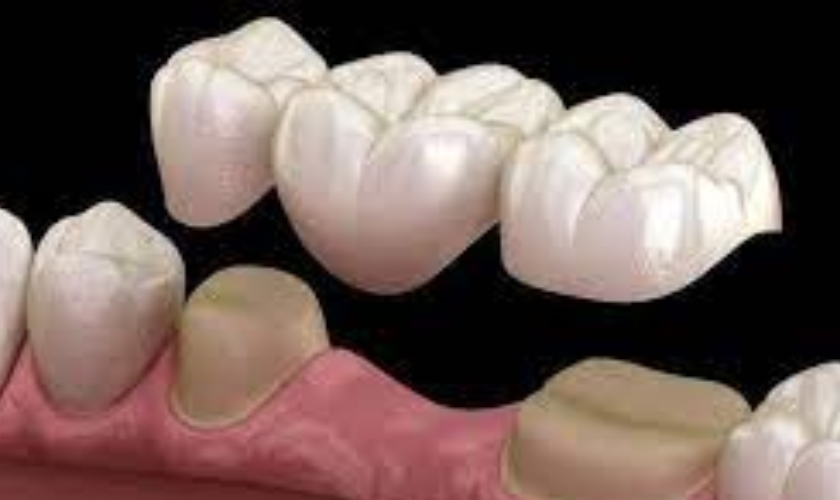
Advantages of porcelain crowns
- Natural Look: The crown seamlessly blends with your existing teeth, giving you a beautiful, natural smile. No more metal mouths!
- Durable: With proper care, porcelain crowns can last for many years without chipping or cracking. They’re tough cookies.
- Biocompatible: No worries about allergic reactions or sensitivity. Porcelain plays nice with your mouth.
- Strong Bond: The crown forms a strong bond with your tooth, ensuring stability and longevity. It’s like a superglue for your smile.
Disadvantages of porcelain crowns
- Pricey: Porcelain crowns tend to be more expensive than other options like gold or ceramic. Think diamonds, not cubic zirconia.
- Less Forgiving: While durable, porcelain isn’t as strong as metal crowns. Avoid chomping on ice cubes with these babies.
- More Tooth Removal: Getting a porcelain crown might require removing more of your natural tooth compared to other options. It’s a bit of a trade-off for beauty.
Porcelain crowns are a great choice if you prioritize a natural-looking, long-lasting smile and don’t mind the cost. Just be gentle with them and remember, sometimes beauty comes with a price (and a little less tooth).
Gold Crowns
Gold crowns are made from a mixture of gold alloyed with other metals, such as copper or silver. This combination creates a strong and sturdy crown that can withstand the forces of chewing and biting. In fact, gold crowns have been proven to be highly resistant to wear and fracture.
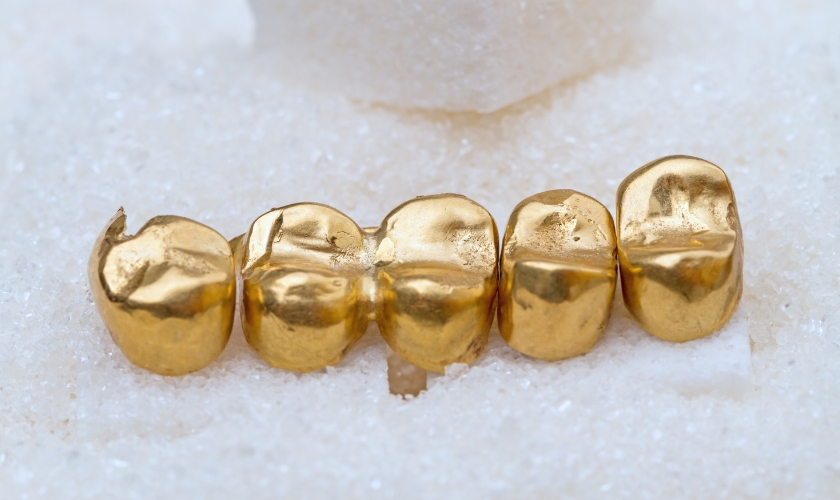
Advantages of Gold Crowns:
- Built to Last: Think Fort Knox for your teeth. Gold is incredibly strong and durable, resisting wear and tear like a champ. Expect these crowns to grace your smile for decades—maybe even tell your grandkids’ stories.
- Kind to Gums: Unlike some metals, gold doesn’t play the allergy game. It’s biocompatible, meaning your gums will greet it like a long-lost friend, with no redness or irritation in sight.
- Natural Flair: While not everyone rocks the gold-tooth look, some find it adds a touch of vintage class to their smile. Bonus points for sparkling conversation starters!
Disadvantages of Gold Crowns:
- Costly Crown: Be prepared to dig deep. Gold doesn’t come cheap, and neither do these crowns. Think investment, not impulse purchases.
- Less Than Subtle: Not everyone’s a fan of the “grill” look. Gold crowns aren’t exactly incognito, so if you prefer a more natural appearance, you might want to consider other options.
- Tooth Trade-Off: Getting fitted for a gold crown might require removing more of your natural tooth than other materials. It’s a beauty sacrifice, but a sturdy one.
Gold crowns are a luxurious, long-lasting choice for those who prioritize durability and don’t mind the spotlight (and the price tag). If you’re looking for a crown that’s as tough as it is beautiful, gold might be your royal match. Just remember, it’s not for everyone.
Ceramic Crowns:
When it comes to restoring a damaged tooth, ceramic crowns offer an excellent option that combines both aesthetics and durability. These crowns are made from high-quality dental ceramic material, which closely resembles the natural color and translucency of your teeth.
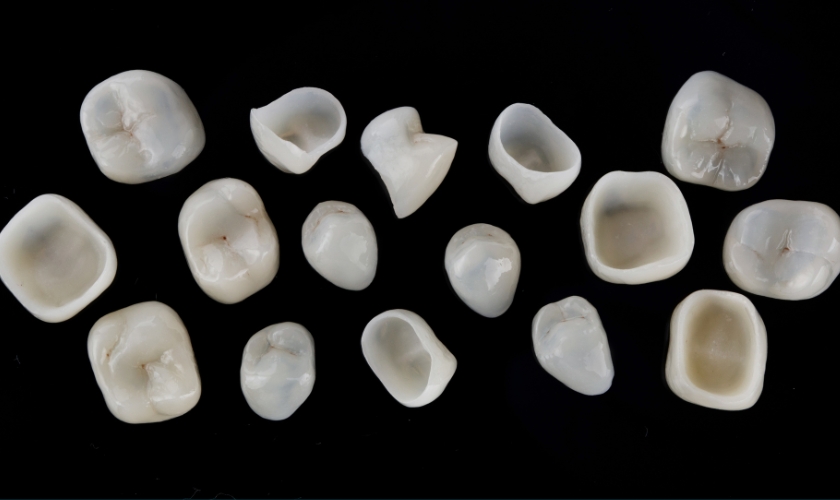
Pros of Ceramic Crowns:
- Nature’s Mimic: Ceramic crowns are like chameleons for your teeth. They blend in seamlessly with your existing smile, thanks to their uncanny ability to mimic the natural color and translucency of enamel. Think of them as invisibility cloaks for your damaged teeth.
- Tough Cookie: Don’t let the “ceramic” fool you. These crowns are built to last. They can handle the daily grind of chewing and biting without chipping or cracking easily. Think of them as tiny fortresses for your teeth.
- Gum Hugger: Unlike some other crown materials, ceramics are gentle on your gums. They won’t irritate or inflame them, making them a great choice for people with sensitive mouths. Think of them as a warm hug for your gums.
- Stain Slayer: Coffee, tea, red wine—no problem! Ceramic crowns are resistant to staining, so your smile stays pearly white for longer. Think of them as a force field against discoloration.
Cons of Ceramic Crowns:
- Pricey Pal: Ceramic crowns are on the pricier side compared to other options like metal or resin. Think of them as a bit of an investment in your smile.
- Not for Crunch Monsters: While strong, ceramics aren’t invincible. Avoid chomping on ice cubes or using them as nutcrackers. Think of them as delicate flowers, not hammers.
- More Tooth to Lose: Getting fitted for a ceramic crown might require removing a bit more of your natural tooth compared to some other materials. Think of it as a small sacrifice for a beautiful smile.
If you’re looking for a crown that’s both beautiful and strong, ceramic crowns are a fantastic choice. Just be prepared for a slightly higher price tag and remember to treat them well. They’ll reward you with a smile that’s naturally stunning and built to last.
Zirconia Crowns:
When it comes to dental crowns, one option that has gained popularity in recent years is the zirconia crown. Made from a strong ceramic material called zirconium dioxide, these crowns offer both durability and a natural-looking aesthetic.
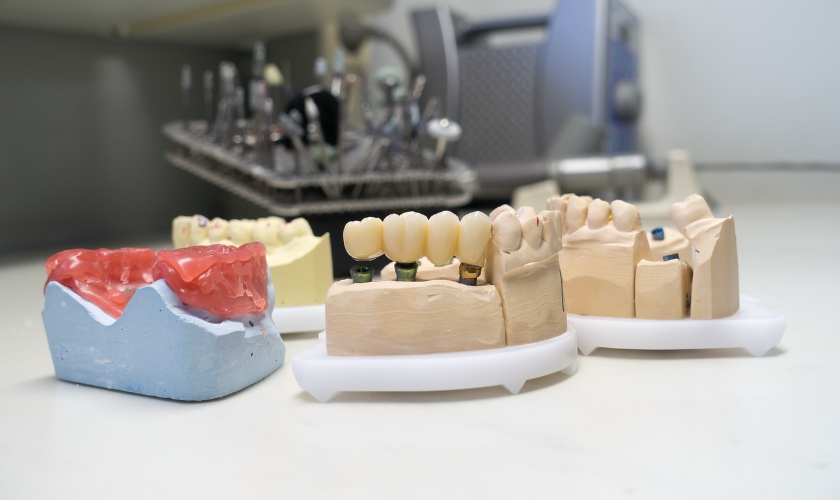
Pros of Zirconia Crowns:
- Tough Guy: Zirconia is one tough cookie. It can handle heavy-duty chewing and biting without chipping or cracking, like a scared egg. Think of it as a shield for your tooth.
- Blending In: Don’t like flashing metal grills? Zirconia crowns mimic the translucence of natural teeth, so they blend seamlessly with your smile. No more “hello, metal mouth!” moments.
- Gum Hugger: Zirconia is as gentle as a kitten on your gums. No irritation, no inflammation—just happy and healthy gums. Think of it as a warm blanket for your gums.
- Tooth Saver: Unlike some crown bullies, zirconia is kind to your natural tooth structure. Less drilling means more of your original tooth survives, which is good news for the long run.
Cons of Zirconia Crowns:
- Pricey Power: Sure, it’s a superhero, but zirconia doesn’t work cheap. Be prepared to invest a bit more compared to other Crown options. Think of it as a VIP pass to a smile makeover.
- Shy Shine: Zirconia isn’t as dazzling as some other materials. If you crave Hollywood-level sparkle, you might want to look elsewhere. Think of it as a natural glow, not a disco ball.
- Not for Grinders: While tough, zirconia isn’t invincible. Avoid using your crowns as nutcrackers or ice cube chompers. Think of it as a sports car, not a tank.
Zirconia crowns are perfect for those who want a strong, natural-looking, and biocompatible crown option. Just be prepared for the price tag and treat them with care. They’ll reward you with a smile that’s both tough and beautiful, like a warrior princess, not a delicate damsel.
Average Cost of Dental Crowns
- Porcelain: Priciest, natural look, durable – $800-$3,000/tooth
- Gold: strong, long-lasting, slightly more expensive $1,200-$2,500/tooth
- Ceramic: Budget-friendly, beautiful, quality balance – $800-$2,000/tooth
- Zirconia: Strong, natural look, similar price to porcelain or ceramic
Remember: Consider budget, durability, looks, and health benefits when choosing your crown!
Choosing the right crown material can feel like navigating a jungle of options. But fear not! Your dentist is your trusted guide, ready to assess your individual needs and recommend the perfect crown for your specific situation. They’ll consider factors like the extent of damage, tooth location, aesthetic preferences, and budget constraints to ensure you get the best possible outcome.
If you’re in the Nashua, NH, area, you’re in luck! Restorative dentistry in Nashua offers high-quality dental crown treatments at competitive prices. Whether you’re facing a cracked tooth, discolored enamel, or simply want to enhance your smile, dental crowns can be the answer you’ve been looking for.
So don’t let a damaged tooth dim your smile’s sunshine. Schedule an appointment with your dentist today and explore the world of dental crowns. With a little superhero magic, you’ll be flashing a confident, healthy grin in no time!
Consult your dentist! Factors like the extent of damage, tooth location, and overall oral health determine if a crown is the best option.
With proper care, porcelain and zirconia crowns can last 10–15 years, while metal crowns can last even longer.
High-quality crowns, especially porcelain and zirconia, are virtually indistinguishable from natural teeth.
Unfortunately, crowns don’t respond to whitening treatments. Discuss shade options with your dentist beforehand.
Maintain good oral hygiene habits, schedule regular dental checkups, and avoid using your crowned tooth as a bottle opener (trust us, your crown will thank you!).


